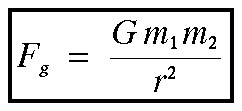Zero Gravity (1)
Warning: The following is going to be a nerdy rumbling. If you have no interest in physics, space, gravity or whatsoever, you should avoid this article so that you don't fall asleep and wake up blaming me for it. :)
I have a peeve about the term "zero gravity".
In the flurry of space tourism news in recent weeks, the term "zero gravity", or "microgravity" cropped out like m-u-s-h-r-o-o-m-s after a monsoon season. And I am disturbed by the fact that the misleading terms have been taken used so rampantly without further explanation in the media.
To begin with, let's look at a few examples from the news articles:
Living in space is quite different than on Earth. That difference, of course, lies in that trifling matter we call gravity or, rather, the lack of it.
As it left the earth's atmosphere, the rocket achieved zero gravity within the next four minutes and soared into the stratosphere.
All the news articles sound very convincing. After all, as a child, haven't we all seen how astronauts float effortlessly in the outer space when there are no gravity forces, and didn't everyone enthusiastically make "angkasawan" our childhood ambition because of the sheer fun of floating? Everyone knows there is no gravity in the outer space, outside the Earth's atmosphere!When the rocket motors start to roar, our angkasawan will begin to experience an increasing G-force in proportion to the increase in acceleration.
[snip]
This period of high-acceleration will last for 8 to 9 minutes until the rocket ship travels 100km above the Earth and reaches the necessary speed of 18,000mph, sufficient to carry it all the way to the International Space Station (ISS). This will take about 50 minutes after the engines stop firing and during this time, zero-G will prevail and this is when astronauts will experience that sense of weightlessness most people associate with being in space...
[snip]
The good news is that once you arrive onboard the ISS, zero-G is nullified as there will be a “synthetic gravity” produced by spinning the space station around its centre. This is a very necessary factor for the well-being of the astronauts as microgravity exposure alters the human body in many ways.
Half of all astronauts suffer space motion sickness when they encounter microgravity and feel as if they are falling. This affects our neurovestibular system, which is what helps our body keep proper orientation while on Earth. This feeling is not dissimilar to the sensation felt after you have been on a terrifying roller-coaster ride. It simply means that your body doesn’t know which way is up, down, left or right.
So, what's wrong with me and my peeve with "zero gravity", you may ask.
The problem begins with the word "gravity". Gravity, as first expounded mathematically by Isaac Newton, is a mutual force that exists between any two objects with a mass. This force is directly proportional to the mass of both objects, but inversely proportional to the square of the distance between the two objects. The fact that there is a gravitational force pulling us towards the ground all the time, is due to the force between the gigantic rock ball and all the various molecules that make up our body.
Mathematically, the relationship is as stated on the right.

- F is the gravity force
- G is a constant (6.67300 × 10^-11)
- The two m's are the two masses
- r is the distance.
So, what happens if I go on a sightseeing trip in ISS?
The International Space Station is an artificial satellite which flies about 319.6 km to 346.9 km above the Earth's surface. Okay, let us redo the calculation of the gravity force in action when I am up there... Surprise, surprise, the answer is 620 newton! The gravity force is only about 10% less than what it is for me right now!
Isn't all that confusing? There is supposed to be zero gravity in the ISS! That's what the newspaper and the astronauts told us! Aren't they floating in space?
What's wrong in here?
[To be continued...]
[Continued in this post]







4 comments:
Eih!! You haven't even completed your previous story leh..
Hah. This post only reminds me of Year 12 Physics. Not a pleasant memory. :P
A safer bet would've been to write, 'due to the warping of the fabric of space-time' - more accurate than the Newtonian laws of gravitation and sounds infinitely cooler.
eggy's right..kinda leaving a trail all over the place? haha, just kidding
interesting thing you have there.. care to explain further? Physics isn't my forte..haha
sophisticatedsoul: Haha physics is sometimes boring because bad teachers only teach the "how" (i.e. calculations and algorithms) instead of the "why" (i.e. the basic concepts).
By the way, I will finish my previous story in a while la. :D I find it easier to write such boring physics stuff than a story. Don't ask me why. Probably because I am boring.
anonymous: Hahaha so deep worr!
flyingspirit: I wrote the explanation in part two of this post. Check it out!
Post a Comment